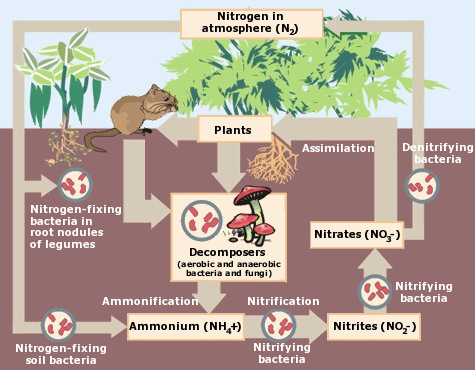I came across this question in my book, it says:
The fertility of the soil increases when there is a lot of ....... in it.
The choices to fill the space were:
Nitrogen - nodular bacteria - fungi
I would exclude fungi as in my course I don't have anything says that fungi affect the fertility of the soil. Both nitrogen and nodular bacteria are good choices and I am confused between them. Nitrogen is an important nutrient, nodular bacteria are the nitrogent-fixing bacteria, so both are important to the firtility of the soil, but I chose nitrogen, as I thought it is more correct, but I found that the answer was "nodular bacteria" so why is this? Is there anything I don't understand?
